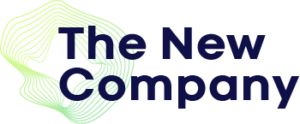
Ein Chatbot ist ein Computerprogramm, das entworfen wurde, um mit Menschen über Messaging-Apps, Websites oder anderen Plattformen zu kommunizieren. Chatbots verwenden künstliche Intelligenz und natürliche Sprachverarbeitung, um eine menschenähnliche Interaktion zu ermöglichen.
Hier sind die grundlegenden Schritte, wie ein Chatbot funktioniert:
Chatbots können dazu verwendet werden, Informationen bereitzustellen, Fragen zu beantworten, Aufgaben auszuführen oder sogar komplexe Interaktionen durchzuführen. Sie können dazu beitragen, Benutzern eine personalisierte und effiziente Unterstützung zu bieten. Mit Chatbots werden heute vermehr Texte und Vorlagen für Verträge erstellt und sogar Studenten verwende diese , um Prüfungsaufgaben zu beantworten (pssst.. bitte nicht weitersagen… smile).
Beispiel 1: Wo finde ich eine Anlaufstelle oder Patientenorganisation für Glasknochenkrankheit in der Schweiz?
Beispiel 2. Welche Forschungstätigkeiten zu Leichtketten-Amyloidose finden in Deutschland statt?
Beispiel 3. Habe ich Anrecht auf eine Rente, wenn ich von einer Seltenen Krankheit betroffen bin?
Beispiel 4. Wie heisst die Dachorganisation der seltenen Erkrankungen in Österreich?
Disclaimer for Cuba Orphanhealthcare Health Advisor Chat Tool – Switzerland
Date: April 05. 2024
Legal Notice: This disclaimer pertains to the use of the Cuba Orphanhealthcare Health Advisor Chat Tool („the Tool“) by Förderverein OrphanHealthcare (“the Publisher”), Alte Steinhauserstrasse 1, 6330 Cham, Switzerland, which utilizes Generative Pre-trained Transformer (GPT) technology to provide health-related information. The information provided by the Tool is not intended to replace professional medical advice, diagnosis, or treatment.
Regulatory Compliance: In alignment with Switzerland’s Federal Act on Data Protection (FADP) and related regulations, the Tool is committed to the highest standards of data privacy and the protection of personal information. Our practices are designed to ensure the confidentiality and integrity of your data.
Scope and Limitations:
Changes to Disclaimer: The Provider reserves the right to modify this disclaimer at any time. Such modifications will be effective immediately upon posting the updated disclaimer on the website. Your continued use of the Tool signifies your acceptance of these changes.
Acceptance of Terms: By using the Tool, you acknowledge and agree to this disclaimer, the terms of our Privacy Policy and understand the limitations of the advice provided. Your use of the tool signifies your acceptance of these terms. If you do not agree with these terms, you should not use the Tool.
Privacy Disclaimer:
We value your privacy and transparency. Please note that our chat tool does not store any personal user data. Our aim is to provide you with a secure and private experience while using our services. For more detailed information on user interactions and data handling, we encourage you to review OpenAI’s ChatGPT User Guidance (https://openai.com/policies)
Additionally, our website uses cookies to enhance your browsing experience. These cookies do not track personal information. For a comprehensive understanding of how cookies are used on our site and how you can manage them, please refer to our Cookie Policy (https://orphanhealthcare.net/datenschutzerklaerung/).
By using our chat tool, you acknowledge and agree to these terms.
Lorem ipsum dolor sit amet, consectetur adipiscing elit. Ut elit tellus, luctus nec ullamcorper mattis, pulvinar dapibus leo.

Lorem ipsum dolor sit amet, consectetur adipiscing elit.

Lorem ipsum dolor sit amet, consectetur adipiscing elit.

Lorem ipsum dolor sit amet, consectetur adipiscing elit.

Lorem ipsum dolor sit amet, consectetur adipiscing elit.

Lorem ipsum dolor sit amet, consectetur adipiscing elit.
Lorem ipsum dolor sit amet, consectetur adipiscing elit. Ut elit tellus, luctus nec ullamcorper mattis, pulvinar dapibus leo.





Erhalten Sie alle Angebote und Updates in Ihrer E-Mail
Förderverein OrphanHealthcare,
Neues Büro: JED, Zürcherstrasse 39, 8952 Schlieren,
*im Kanton ZG eingetragener & wohltätiger Verein
Aufgaben, die für unsere Sozialgesellschaft wichtig und notwendig sind, vom Staat aber nicht mehr geleistet werden können, übernehmen heute immer öfter engagierte NGO’s. Mit unserer operativen Arbeit leisten wir einen wichtigen Beitrag für betroffene Familien und viele weitere Partner und Organisationen.
Aufgaben, die für unsere Sozialgesellschaft wichtig und notwendig sind, vom Staat aber nicht mehr geleistet werden können, übernehmen heute immer öfter engagierte Stiftungen. Mit unserer operativen Arbeit leisten wir damit einen wesentlichen Beitrag für die betroffenen Familien. Diese stehen häufig mit Ihren Fragen und Problemen allein, denn diese werden zu oft nicht durch Ärzte oder Behörden beantwortet. Es mangelt an konkreten Angeboten, die Kinder und Familien mit einem Betroffenen direkt unterstützt. Sozialsysteme und Krankenkassen sind mit der Vielzahl und Komplexität überfordert und Therapieangebote und Alternativen sind selten. Hier können wir als Stiftung etwas bewirken.